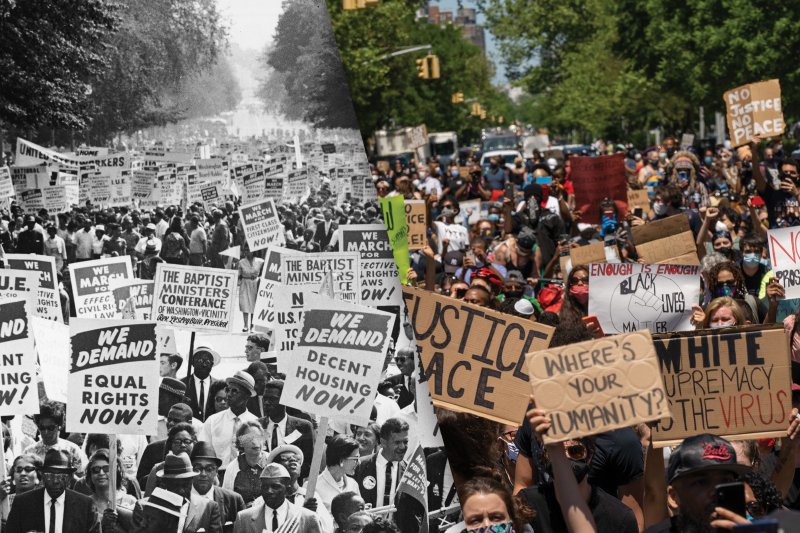Crossroads of Protest: Historical Connections Between Racial Justice and Other Justice Movements
- Introduction
- Disability Rights
- Environmental Justice
- Immigrant Rights
- Indigenous Rights
- Labor and Economic Rights
- LGBTQIA+ Rights
- Women’s Rights
- Art and Protest
- Music and Protest
- Protest in Portland
- Other Links
- Get Help
Chat with a Librarian
Need help from a librarian? Use our chat system. Click the button to open the chat window.
Research Guide Purpose

Left: Between 200,000 and 500,000 demonstrators march down Constitution Avenue during the March on Washington for Jobs and Freedom, Washington D.C., Aug. 28, 1963; Right: Protesters gather in Harlem to protest the recent death of George Floyd on May 30, 2020 in New York City. Credit: Hulton Archive/Getty Images; David 'Dee' Delgado—Getty Images
As long as oppression has existed in the world, there have been protests to try to effect change. We felt it was important to try to contextualize the Black Lives Matter protests here, in Portland, and around the nation. These protests did not come out of nowhere, nor were they merely a response to people frustrated with a Covid-19 restricted world. We hope that the following sources will help us all to better understand the interconnectedness between racial justice and many other struggles for justice, as well as the roots of protest in general.
The subtopics on this research guide are organized semi-alphabetically. The sources listed are not meant to be comprehensive.
- Last Updated: Mar 26, 2025 4:53 PM
- URL: https://guides.pcc.edu/c.php?g=1066288
- Print Page